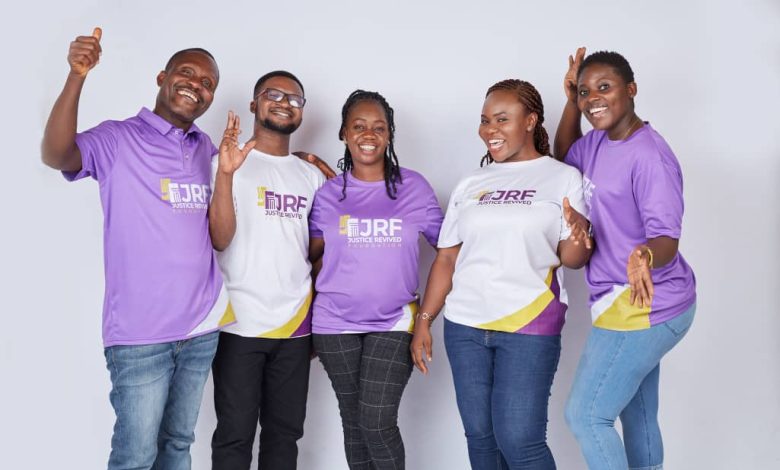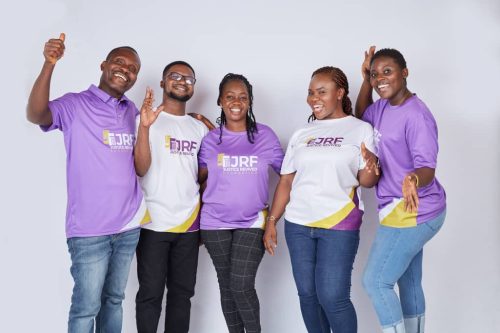Accra Conference: Janice Tiwah Oware Urges Ghana to Turn Child Protection Laws Into Action

At a pivotal conference on human rights and social justice held in Accra, Janice Tiwah Oware, Esq., Founder and Executive Director of the Center for Human Rights and Social Justice, issued a powerful appeal to the nation to translate Ghana’s well-crafted child protection laws into concrete, everyday actions that genuinely safeguard the rights and dignity of children.

Addressing a gathering of legal experts, civil society actors, law enforcement officials, and social workers, Madam Oware lamented the wide gap between legislative frameworks and their real-life enforcement, especially in communities where abuse is most prevalent. She said Ghana has made commendable progress on paper by enacting comprehensive legal protections for children, but the lived experiences of many victims show that justice remains elusive.
Drawing from the Children’s Act, 1998 (Act 560), she explained that abuse is defined to include not only physical harm but also neglect, sexual exploitation, and emotional damage. She stressed that abuse is not always visible; emotional neglect, psychological manipulation, and deprivation of basic needs like food, shelter, and education also constitute serious violations of a child’s rights.
Madam Oware added that the Ghanaian legal landscape—comprising the Domestic Violence Act, the Criminal Offences Act, the Human Trafficking Act, and the Cybersecurity Act—offers a strong arsenal of tools for protecting children and survivors of abuse. Additionally, the 1992 Constitution of Ghana guarantees the fundamental rights and freedoms of every individual from Articles 12 to 33. Yet, she warned that many of these protections are not felt by the most vulnerable, especially children in rural and underserved areas.
She observed that many cases of abuse go unreported, not because they are rare, but because victims are often silenced by fear, shame, or a lack of access to justice. In her words, “What use are these laws if a child in Bongo or Bawku cannot report an abusive guardian because there’s no social welfare office or no trained officer willing to believe them?”
Janice Tiwah Oware called for urgent, systemic reforms. She advocated for the training and resourcing of police officers, Domestic Violence and Victims Support Unit (DOVVSU) personnel, social workers, and judicial officers to handle abuse cases with sensitivity, speed, and professionalism. She emphasized that protection must not be selective or dependent on geography. “From Tamale to Takoradi, every child deserves the same swift and respectful access to justice,” she said.
The human rights lawyer also urged the government and all stakeholders to draw inspiration and guidance from international treaties that Ghana has ratified, including the United Nations Convention on the Rights of the Child (CRC), the Convention on the Elimination of All Forms of Discrimination Against Women (CEDAW), and the African Charter on Human and Peoples’ Rights. These instruments, she said, do not just recommend best practices but obligate Ghana to align its systems with global standards of protection, dignity, and equity.
Madam Oware also drew attention to the rise of digital abuse and the importance of enforcing provisions under the Cybersecurity Act. She noted that children are increasingly vulnerable to online predators, harassment, and exploitation through social media and messaging platforms, calling for stronger cybercrime monitoring units and public education on digital safety.
In her concluding remarks, she declared, “We must stop celebrating the laws we have and start focusing on how many children they actually protect. Laws are not just to be printed in gazettes—they must be felt in the lives of children in every corner of Ghana. Justice must not be distant, intimidating, or delayed. It must be real, accessible, and swift.”
The Accra conference ended with strong consensus among participants that greater collaboration, public awareness, and institutional accountability are required to close the gap between legal promises and the everyday realities of children in Ghana. Janice Tiwah Oware’s address served as a rallying cry, reminding all stakeholders that the real test of Ghana’s commitment to child rights lies not in its statutes but in its actions.





